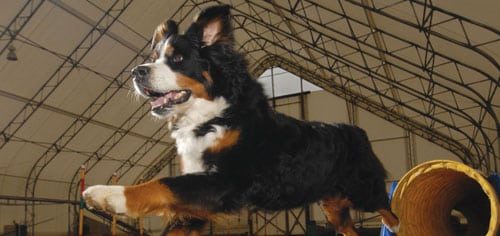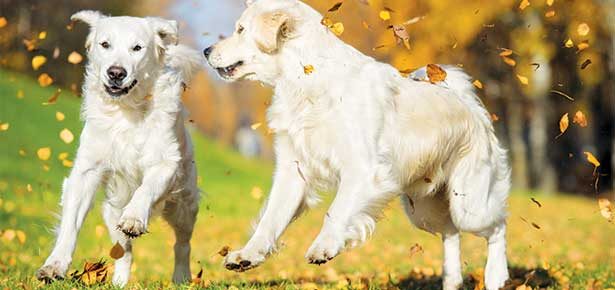

What Your Vet Wishes You Knew
The difficult side to a difficult job
Your other family doctor—your veterinarian. The relationship you form with your vet can be complicated, to be sure. Really, it stands to reason; our beloved dogs, often our most constant companions, can’t tell us what’s wrong yet rely on us to be their advocates. It can be stressful and heartbreaking dealing with their health issues. We may at times experience feelings of disappointment, frustration, even anger at the person whose job it is to help us care for our pets.
But what do veterinarians think of us? If we were willing to listen, what would they want us to know about the work they do?
Curious to find out, I scheduled an interview with Dr. Ilana Smolkin—a partner at Guelph Animal Hospital, a full-service, integrated hospital in southwestern Ontario, Canada.
I arrive and wait at the front desk. Next to me, a man is making a loud series of statements about the very unfortunate timing of his dog’s illness, how he really didn’t “need” a bill like this, and so forth. I find myself feeling sorry for the front desk staff bearing the brunt of his frustrations.
When the interview begins, I tell Dr. Smolkin about my lobby experience. She shrugs, and says, “I’m not surprised.” This leads to our first point of discussion.
“I wish that more people understood that this is a business,” she says. “We have to charge for the services we provide, just like every other business.”

They aren’t offering the cheapest services in town; they don’t want to. It’s a business decision the partners stand behind—a commitment to providing an extremely high standard of care. When I ask about common expenses, I’m shocked to hear that some of the tools required to do a proper work up, such as x-ray and ultrasound equipment, cost as much as $100,000.
Nearly 1,500 miles away, Dr. Jeremy Orr’s comments are similar. Orr specializes in small animal cardiology with Rocky Mountain Veterinary Cardiology in Denver, CO. “Equipment costs are staggering,” he agrees. He also highlights staffing as an expense that many might not appreciate. “We want to bring on experienced technicians, but they understandably come with a higher cost.”
Perhaps because the service involves compassion and caring, we customers sometimes forget a basic truth: this is a business, and these hard-working experts deserve to make a good living.
“Twenty years ago,” says Smolkin, “it seemed like vets could do no wrong. Now, there’s a perception that we’re in it for just a buck. We hear it all the time.”
“I don’t look at pets that walk in the door and see income,” says Fleming. “I see an opportunity to bond with them and help their people provide them with a lifetime of good health.”
Orr also hears regularly that vets are just out to make tons of money. “It’s frustrating to hear, partly because there are so many more lucrative career choices out there, but also because we are a sensitive group by nature. We want to help animals and their people, so when there is an outpouring of anger directed at us, trust me, we take that home with us.”
Just how often are vets confronted with anger and unpleasant behaviour? All three tell me the same thing: far too often.
From Dr. Fleming’s experience, anger has most commonly come in the emergency setting, where emotions are running high and bills are also typically rising due to the seriousness of the injury or illness.
“You try to remember that anger is often the first reaction to grief,” she says, “but I won’t lie. If someone accuses me of lacking compassion or being money-hungry, it’s very hurtful.”
All three share similar stories of hours spent losing sleep while waiting on test results, reaching out by phone to colleagues near and far to seek help on tough cases, and the roller-coaster of emotions when outcomes aren’t good.
I talk to each vet about how they handle tough cases. What’s it like to keep a brave face all day, going from client to client looking focused and professional, when you’ve got a case that’s proving difficult or an animal that’s failing despite your best efforts?
“In those cases emotions can run very high, especially when it’s taking time to get to the root of the pet’s problem,” says Dr. Fleming.
“One thing I wish people understood,” says Dr. Smolkin, “is that medicine is not an exact science. “Every patient is different and presents differently. We try to get to the right answer as quickly as possible—and we’re just as frustrated as our clients when we’re struggling to find that answer.”
“I always tell people that it’s not the science of medicine, it’s the art of practicing medicine,” adds Dr. Orr. “If a dog could simply say, ‘my abdomen hurts,’ that would make a case workup very simple.”
Veterinarians are animal advocates. They must speak for the patient, but in many cases the message is incredibly difficult for people to hear. All three vets admit this can be a struggle.
“Denial is a powerful stage of grief,” says Smolkin. “It takes a lot of introspection for a pet owner to acknowledge that they’re not thinking objectively.” Dr. Fleming adds, “we have to be the voice for animals, because pets are so good at hiding signs of illness.”
It happens routinely that someone brings in their pet for something that seems minor, only to learn that it’s actually very serious and will require testing and treatment. “The fees, then, are also something they weren’t expecting,” says Fleming, “so we can be met with accusations that we’re just trying to drive up our fees. But we only recommend what we believe is best for the animal.”
“Anger can be a common response when the news isn’t promising,” notes Orr. Like his colleagues, he considers it a part of the grieving process and tries not to take it personally. It’s not always easy, though. “I don’t think people realize how hard it is for us to deliver sad news. We feel badly every time an outcome isn’t positive.”
It can be no surprise, then, that end-of-life decisions are particularly difficult. How do vets cope with this aspect of their day to day roles?
“When we know the time has come to let someone’s pet go,” says Dr. Smolkin, “we need to work with the family and help them make that choice. It’s very emotionally draining.”
“For sure, dealing with pet loss really is the hardest part of the job, says Dr. Fleming, “but it’s not the worst part. On some level, it’s beautiful to be able to help families offer their pet a peaceful end to its suffering. I look at it as a gift.”
As a specialist, by the time Dr. Orr sees his patients, the family vet has been through the paces and ultimately provided a referral to a cardiologist, so they know they’re dealing with a serious health issue. “But,” he says, “sometimes it is out of my hands as well, and I have to deliver the news that the best option is a euthanasia.” Most of the time, his clients trust in his judgment. “They need to hear from me that we’ve reached that point.” It’s still hard, though. No matter how prepared someone may be to hear bad news, for this vet delivering it never gets any easier.
Is veterinary medicine glamorous? I sure don’t think so. The more I learn about this career, the more respect I have for those who have chosen to dedicate their lives to helping animals.
It’s a difficult job, and a draining one, but most vets, I think, can’t imagine doing anything else. When I ask these three, they admit they’ve had moments where they’ve questioned their choice, but they all come back to the same answer: they wouldn’t want to do anything else. Theirs is a calling and they’ve answered it.
And maybe that’s what vets really want you to know—that your pets are in good hands because they are dedicated professionals in it for all the right reasons.
Join the newsletter and never miss out on dog content again!
"*" indicates required fields
By clicking the arrow, you agree to our web Terms of Use and Privacy & Cookie Policy. Easy unsubscribe links are provided in every email.





